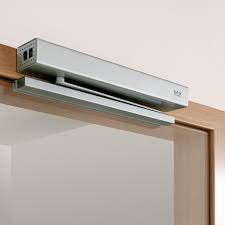
The Future of Automatic Sliding Doors: Enhancing Business Efficiency Through Innovative Solutions
Estimated reading time: 5 minutes
- Understanding the latest technology trends in automatic sliding doors
- Learning how these doors enhance business growth strategies
- Identifying practical takeaways for HR and recruiters
Table of Contents
- Understanding the Technology Behind Automatic Sliding Doors
- The Role of Automatic Sliding Doors in Business Growth Strategies
- Trending Innovations in Automatic Sliding Door Technology
- Practical Takeaways for Recruiters and HR Professionals
- Conclusion
Understanding the Technology Behind Automatic Sliding Doors
Automatic sliding doors have long been a staple in commercial environments, from retail stores to corporate offices. Their primary function is to provide a convenient entry and exit point while improving accessibility. However, evolving technologies are transforming these doors from basic convenience tools to sophisticated systems equipped with advanced features.
Recent developments include sensors that increase responsiveness, energy-efficient mechanisms that reduce power consumption, and integration with smart building systems. For example, some new sliding door systems now come with AI-driven sensors that adjust the door’s operation based on foot traffic patterns, significantly enhancing user experience while maintaining security.
Organizations are recognizing the potential of these automatic sliding doors not only to streamline foot traffic but also to enhance energy efficiency, thereby contributing to sustainability initiatives. Businesses that prioritize eco-friendly practices can position themselves as industry leaders, attracting a growing demographic of environmentally-conscious consumers.
The Role of Automatic Sliding Doors in Business Growth Strategies
- Enhanced Accessibility: Automatic sliding doors improve accessibility for individuals with disabilities, ensuring compliance with the Americans with Disabilities Act (ADA) standards. By creating a welcoming entryway, businesses can attract a broader customer base, ultimately driving sales and enhancing brand reputation.
- Streamlined Customer Experience: In a highly competitive market, customer experience can be a key differentiator. Automatic sliding doors provide a seamless entry experience, reducing wait times and creating a positive first impression. This is especially important in high-traffic environments where customer satisfaction is critical.
- Cost Savings Through Energy Efficiency: Implementing energy-efficient automatic sliding doors can lead to significant cost savings for businesses. These systems can help maintain consistent indoor climates, reducing heating and cooling expenses. According to a report from the U.S. Department of Energy, improperly sealed doors and windows can cause energy losses of 10-30%, which energy-efficient sliding doors can mitigate.
- Integration with Smart Technologies: Modern automatic sliding doors can be integrated with building automation systems, allowing businesses to control lighting, heating, and security from one central platform. This integration optimizes operational workflows and improves security for both employees and customers.
Trending Innovations in Automatic Sliding Door Technology
1. Smart Sensors and Automation
The latest automatic sliding doors are equipped with high-tech sensors that can detect the presence of individuals approaching the door. These sensors can adapt to various conditions, such as changes in weather or the time of day, optimizing door operation based on user demand.
2. Touchless Solutions
The trend towards hygiene and safety has gained momentum due to global health concerns. Touchless automatic sliding doors can be activated by sensors that detect motion, ensuring minimal contact, which is a significant advantage in hospitals, restaurants, and supermarkets.
3. AI and Data Utilization
Artificial Intelligence (AI) is revolutionizing how businesses operate, and automatic sliding doors are no exception. Facilities are increasingly utilizing AI to analyze foot traffic data, making it easier to predict peak usage times and optimize door functions accordingly. This capability not only enhances customer experience but also aids in maintenance by identifying potential issues before they become significant problems.
4. Modular and Customizable Solutions
As businesses seek tailored solutions, manufacturers are responding by offering modular and customizable automatic sliding door options. Companies can choose materials, finishes, and functionalities that align with their brand aesthetic and operational needs.
Practical Takeaways for Recruiters and HR Professionals
- Embrace Technology Trends: HR professionals should stay informed about technological advancements, such as automatic sliding doors, that can enhance workplace efficiency. Understanding these innovations can help HR teams advocate for facility upgrades that promote a better work environment.
- Prioritize Accessibility: When planning office layouts or renovations, consider how automatic sliding doors can enhance accessibility for all employees and clients. This inclusivity can positively impact employee morale and customer satisfaction.
- Foster a Culture of Innovation: Encourage your teams to think creatively about how technological advancements can solve operational challenges. A culture that embraces innovation will position your organization as a forward-thinking leader in your industry.
- Understand Business Impact: Familiarize yourself with how the integration of automatic sliding doors can contribute to a company’s bottom line. Presenting data-driven insights that illustrate potential cost savings and efficiency improvements can bolster support for necessary upgrades.
Conclusion
The future of automatic sliding doors is brighter than ever, with technological advancements paving the way for increased efficiency, accessibility, and cost savings. For businesses looking to stay competitive, adopting these solutions is not just a trend; it’s a necessity.
As a team dedicated to operational efficiency and task delegation, DELEGG is here to support your journey into integrating cutting-edge technologies within your business. We specialize in consulting services to help streamline workflows and elevate your operational capabilities.
If you’re ready to explore how automatic sliding doors and other innovative solutions can enhance your business processes, or if you need help delegating tasks effectively to maximize your team’s output, don’t hesitate to contact us today. Let DELEGG guide you toward a more efficient and productive future!
FAQ
What are automatic sliding doors?
Automatic sliding doors are entry systems that open automatically when someone approaches, providing easy access while improving the flow of foot traffic in commercial environments.
How do automatic sliding doors improve accessibility?
They allow individuals, including those with disabilities, to enter buildings without needing to physically push or pull the door, thus ensuring compliance with accessibility standards.
Are touchless options available?
Yes, many modern automatic sliding doors feature touchless capabilities that allow them to open based on motion detection, enhancing hygiene and safety.





